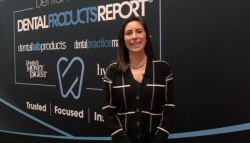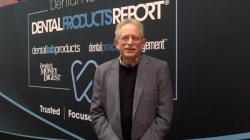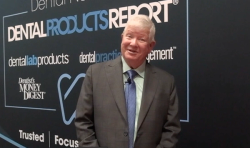- About Us
- Advertise
- Editorial
- Contact Us
- Terms and Conditions
- Privacy Policy
- Do Not Sell My Personal Information
© 2025 MJH Life Sciences™ and Dental Products Report. All rights reserved.
Is your laser making you sick?
You don’t want to be the first. While there are no documented cases of a clinician acquiring a disease from laser plume, the possibility is there. That’s why it’s so important for you to wear the proper mask when using a laser.
You don’t want to be the first.
While there are no documented cases of a clinician acquiring a disease from laser plume, the possibility is there. That’s why it’s so important for you to wear the proper mask when using a laser.
Laser plume
When you use any type of instrument, you’re going to create a plume or aerosol coming out of the patient’s mouth, New York laser dentist Dr. Robert Convissar said. When you use a laser you create a plume of smoke, and research shows that smoke could contain carcinogens and DNA particles.
“It’s generally not something you’d want to inhale,” said Dr. Convissar, who lectures worldwide about dental laser applications. “It’s something that can potentially cause disease.”
Not just any mask will do
You need your mask to filter out disease-causing agents that might be in laser plume, and regular cup masks just don’t meet that standard, Dr. Convissar said. Your mask should have a higher filtration rate-0.1 micron to be exact.
These masks are easy to find and come in plenty of different varieties, including tie on, ear loop and ear loop with face shield. Dental hygienists or assistants who are in the room during a laser procedure need the same level of protection.
The filtration your mask should have when using a laser.
“There’s always the potential of contracting a disease from inhaling the plume,” Dr. Convissar said. “The odds are highly unlikely but they’re higher than zero, and you don’t want to be the first case. A patient could walk into your office and have hepatitis that wasn’t diagnosed. If you use a laser on that patient you could potentially inhale some DNA from the hepatitis virus. The same thing goes for any STD or any other number of diseases. The good news is hepatitis and many other diseases are spread by contact with blood and saliva, not by inhalation of plume, so the risk is small. The odds of contracting a disease is highly unlikely but it’s higher than zero, and you don’t want to be the first case.”
The No. 1 way to protect yourself against plume is wearing the correct mask, Dr. Convissar said, and the No. 2 two way is to make sure you have high speed suction right by your laser. That will get rid of the majority of the plume, dramatically decreasing the danger to you and your staff.
If you have oxygen and/or nitrous oxide in the room, make sure they’re turned off before you use your laser. Keep anything flammable away from the surgical site.
Protecting yourself while using a laser doesn’t stop with a mask-you also need to wear safety glasses, Dr. Convissar said. But just like you can’t wear just any mask, you can’t wear just any glasses. You need to make sure the glasses are wavelength specific; every wavelength is different and absorbed by different parts of the eye. Manufacturers typically provide three pairs of goggles for each laser they sell: one for the dentist, one for the patient and one for the assistant.
Many dentists use magnification these days, Dr. Convissar said, and those dentists still need to wear wavelength-specific protection.
“Various optic companies make filters that can go in the dental microscope so there’s no problem,” Dr. Convissar said. “There are a variety of manufacturers that make clip-ons that clip on to loupes to protect the dentist.”
Safety education
Before you use lasers in your practice, you need to learn about safety. The bare minimum education that any clinician should have before putting a laser into a patient’s mouth is Academy of Laser Dentistry (laserdentistry.org) certification.
The 12-hour course is given over two days and goes over every wavelength and safety precautions you and your staff need to take when using a laser.
A great tool
Lasers are great additions to your operatory, and as long as you take safety precautions-including protecting yourself and your staff from laser plume-you’ll reap the many benefits of laser dentistry.



